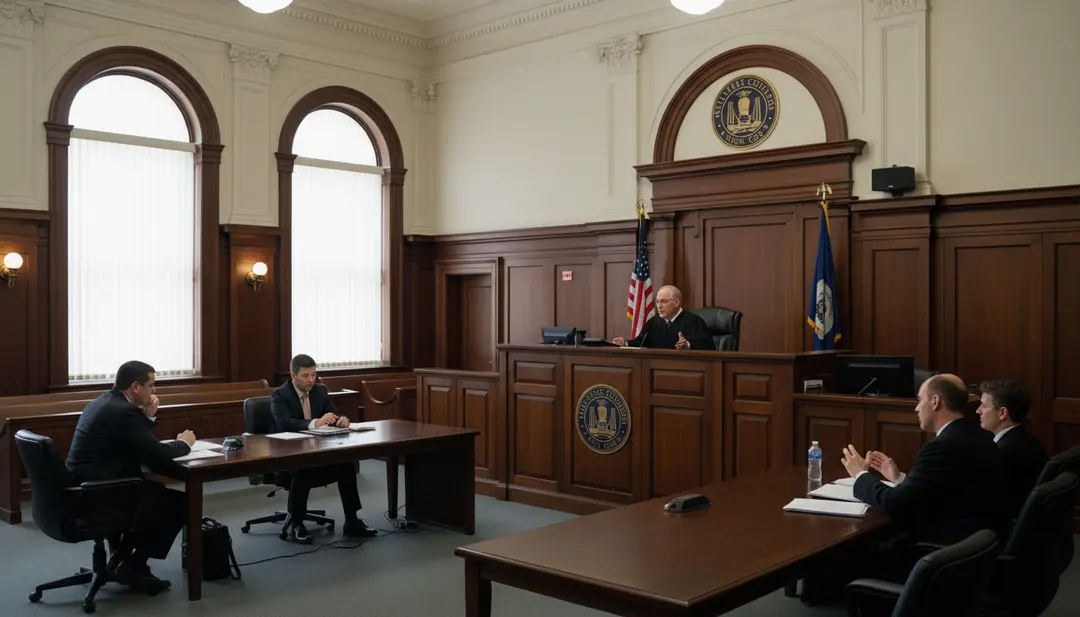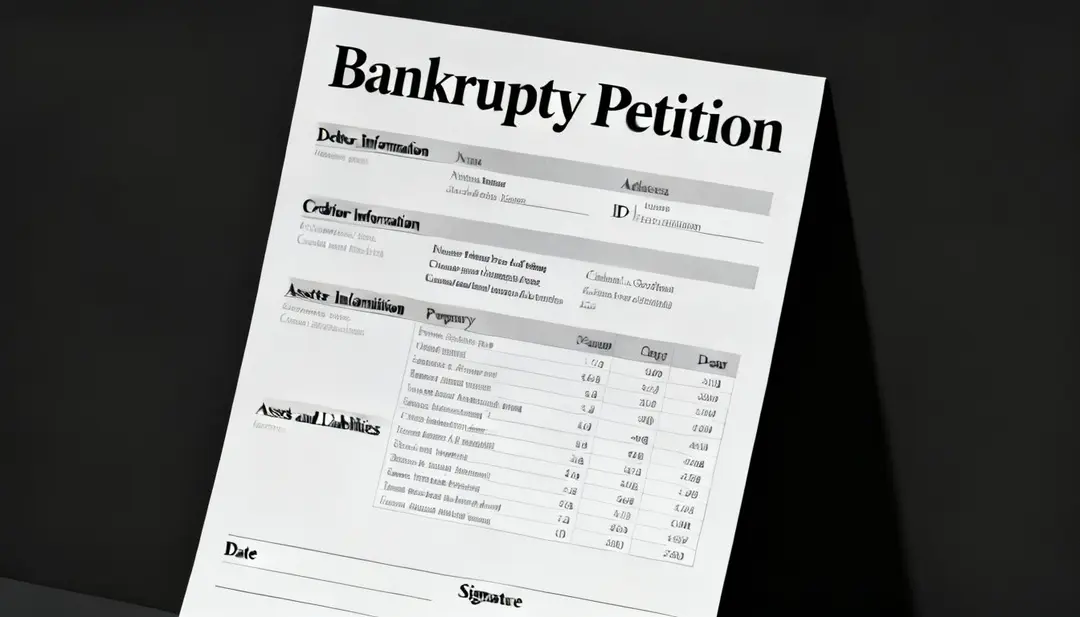Understanding Fines for Landscaping Violations [2025 Guide]
Interpreting HOA rules and regulations in Arizona can be tougher than it sounds. If you manage or lead a homeowners association, clear rule interpretation is not just a legal box to check—it's how you prevent disputes and maintain confidence across your community. When it comes to “Fines for Landscaping Violations,” confusion around the wording or enforcement of these rules can open the door for complaints, inconsistent penalties, or even expensive legal battles.
Board members often struggle with vague documents, evolving state laws, and homeowners who want their concerns addressed fairly. Getting this process right protects both owners and your association, keeping property values and neighbor relations strong. For a practical look at how fines work and what counts as a reasonable penalty, you can review this guide to Arizona HOA fines and CC&R rules.
Working with an experienced Arizona HOA Attorney matters more than ever—especially in Phoenix or Tucson, where the legal environment changes often. At Halk, Oetinger, and Brown, our team covers every angle for planned communities and condominiums. You’ll get fast answers, effective support, and billing that helps you budget with confidence.
Why Careful Interpretation of HOA Rules Matters in Arizona
Getting HOA rules right is more than a matter of paperwork. In Arizona, strict statutes and detailed documents set the tone for what HOAs can enforce and how they may do it. Misreading, ignoring, or loosely interpreting those rules can lead to misunderstandings, costly disputes, and loss of trust from your community. With issues like Fines for Landscaping Violations drawing more attention, understanding and applying your rules properly keeps your HOA running smoothly—and keeps you out of unnecessary trouble.
Statutory Authority and Governing Documents
Arizona HOAs don’t operate in a legal vacuum. The Arizona Planned Communities Act and Arizona Condominium Act spell out exactly what rights and obligations associations have. These state statutes provide the backbone for everything from meetings and records to enforcement powers and dispute resolution.
But your association’s authority is also firmly grounded in the community’s own documents, known as the Declaration of Covenants, Conditions, and Restrictions (CC&Rs), bylaws, and established rules. These documents describe what’s allowed, how rules are enforced, and what consequences homeowners can expect. This mix of state law and local rules forms your compliance roadmap.
If you want a practical breakdown of how state law shapes these rights and procedures, this overview of HOA laws in Arizona is a solid resource for anyone serving on a board.
The key takeaway is this: before issuing Fines for Landscaping Violations or making changes to common areas, double-check both your CC&Rs and the relevant Arizona statutes. An experienced Arizona HOA Attorney, a Phoenix HOA Lawyer, or a Tucson HOA Attorney can save your board from painful mistakes by reviewing policies and clarifying which rules are truly enforceable.
Risks of Misinterpretation for Boards and Homeowners
Misreading community rules doesn’t just create confusion. It can invite serious problems for both HOA boards and individual owners.
If your board acts outside the bounds of its authority or applies fines inconsistently, you could face:
- Legal liability: Homeowners may challenge fines or enforcement actions in court, putting your association at risk for costly litigation—especially with hot-button topics like Fines for Landscaping Violations.
- Financial setbacks: Incorrect or illegal fines may have to be refunded, and defending the association can strain your budget.
- Loss of trust: Residents expect fair and consistent rule enforcement. Inconsistencies erode confidence, leading to more complaints and less community engagement.
For homeowners, unclear rules can mean sudden or surprise penalties, ongoing conflict with the board, or a feeling that they can’t use or enjoy their own property. When board decisions don’t align with your governing documents, the fallout isn’t just legal—it’s personal.
Careful interpretation is essential if you want to avoid these pitfalls. Boards benefit by involving legal counsel, staying updated with training, and reviewing guidance like the Arizona HOA Architectural Guidelines.
Ultimately, when rules are clear and used properly, your community is more peaceful, property values stay strong, and disputes are resolved the right way—without drama or financial headaches.
How to Read and Analyze Your HOA’s Rules and Regulations
Every Arizona HOA’s documents are unique, but the core process for reading and analyzing them remains the same. If you want to prevent misunderstandings about Fines for Landscaping Violations, start with a structured approach. Get comfortable with the key terms in your CC&Rs and bylaws, then spot any vague or missing rules before they become flashpoints for disputes. This step-by-step focus protects your community’s transparency and your board’s authority—while helping you spot problems early.
Key Terms and Definitions to Know
Understanding the common terms in your HOA’s documents keeps you on steady ground. Arizona CC&Rs and rules use legal and regulatory language that can confuse even experienced board members. By getting familiar with certain terms, you unlock what’s enforceable, what’s required, and where you might need an Arizona HOA Attorney, Phoenix HOA Lawyer, or Tucson HOA Attorney for backup. Common terms you’ll often see include:
- Assessments: Fees charged to homeowners for shared community expenses.
- CC&Rs (Covenants, Conditions & Restrictions): The main set of rules filed with the county; they control property uses and member conduct.
- Bylaws: Internal rules for board operations, such as elections and meetings.
- Quorum: The minimum number of members that must be present for the board or membership to make valid decisions.
- Architectural Guidelines: Rules for approving changes or improvements to properties.
- Fines: Monetary penalties for rule violations, including Fines for Landscaping Violations.
- Lien: A legal claim against a property for unpaid assessments or fines.
- Due Process: Procedures that ensure homeowners are notified and given a chance to respond before fines are imposed.
Getting comfortable with these terms puts you in a stronger position to analyze rule enforcement, resolve concerns over unclear language, and avoid unnecessary mistakes. For a broader picture of how HOAs interpret property rentals, consider reading about the impact of rentals on Arizona HOA communities. Even if rentals are not your hot topic, this can help sharpen your eye for how definitions shape board decisions.
Spotting Ambiguities and Gaps
No set of HOA rules is perfect. Ambiguities or gaps can lurk in your documents, waiting to cause discord. An ambiguity is usually a poorly worded sentence or an undefined term. A gap is an outright missing provision where no rule exists to address a modern concern (like fines for artificial turf that weren’t considered a decade ago).
To find these weak spots:
- Look for Vague Phrases: Watch for words like “reasonable,” “adequate,” or “as determined by the board.” If your landscaping fine policy says “landscape must be well-kept,” that’s open to debate.
- Identify Missing Topics: Check for new issues, such as changes in state law, that your documents may not cover. Recent legislation could affect how you apply fines or change compliance requirements.
- Compare with Arizona Law: Sometimes, state law fills a gap. But if the documents and the law pull you in different directions, an Arizona HOA Attorney can help clarify what prevails.
- Check for Overlap: Overlapping rules or conflicting sections lead to gray areas, making it unclear which rule takes priority.
Whenever you find an unclear rule or gap, document your concerns. Bring them to your next board meeting or request clarification from your HOA’s legal counsel. This proactive approach keeps you compliant and reduces the risk of inconsistent enforcement—the fastest way to damage trust in your leadership.
If you want guidance tailored for new issues facing Arizona boards, check out Halk, Oetinger, and Brown’s important tips for new HOA board members in Arizona. This resource highlights how to approach unclear rules and work effectively with counsel.
By making time to read thoroughly and question what is confusing, you build a more transparent and predictable community environment. That’s the best defense against escalated conflicts—and the smartest way to manage Fines for Landscaping Violations while earning trust and respect from your neighbors.
Fines for Landscaping Violations: A Common Trouble Spot
Fines for Landscaping Violations are one of the most contested and confusing areas for Arizona HOAs. Whether it’s a patchy lawn, unauthorized tree removal, or decorative rocks out of code, homeowners often feel singled out when they’re fined. HOA board members, in turn, worry about treating everyone fairly while keeping the community looking its best. The way your board handles these fines can spark either goodwill or ongoing arguments.
This section explains how Arizona law guides the fining process, and how your board can steer clear of costly disputes. When you understand the basics—and set up strong communication—everyone wins.
What Arizona Law Says About Fines
Arizona statutes allow HOAs to issue fines for rule violations, including those tied to landscaping. The legal focus here is on providing enough notice, a clear explanation, and a real chance for the homeowner to respond. HOAs must always follow their own governing documents (the CC&Rs and rules), but the state also expects each board to treat owners equitably.
Here’s what Arizona law requires for fining homeowners:
- Notice and Opportunity to Respond: Before levying a fine, your HOA must give the homeowner written notice of the alleged violation and a detailed explanation of what rule is at issue. This isn’t just best practice—it’s legally required.
- Fair Hearing: Owners must be allowed to respond, either in writing or in person, before any fine is final. Skipping this step can make fines unenforceable and expose the board to legal trouble.
- Clarity and Consistency: The fine amounts and reasons must match what’s written in your CC&Rs or bylaws. Avoid improvising amounts or creating new penalties on the fly.
- Document Everything: Keep records of every notice sent, response received, and board action. If your association ever has to defend itself, these details protect both you and the community.
Arizona law doesn’t just promote fairness—it expects it. For any challenging situation or if you’re not sure whether your fining process holds up, contact an Arizona HOA Attorney for guidance that fits your association.
How to Avoid Disputes Over Landscaping Violations
Preventing arguments starts with transparency and good process. Many disputes arise because homeowners feel blindsided by fines or believe the board is inconsistent. Here are key ways to avoid conflicts:
- Send Clear and Timely Notices: When you spot a violation, issue a friendly written notice explaining what needs to be fixed and the relevant rule. Spell out the next steps if the issue isn’t resolved.
- Make Communication Two-Way: Invite questions or requests for clarification. When homeowners understand the “why” behind a rule, they’re more likely to comply.
- Handle Repeat Offenses with Care: While escalating responses are okay, don’t skip steps or rush into heavy fines.
- Use Consistent Procedures: Follow the same process for every resident and document each interaction. Consistency builds trust and reduces perception of favoritism or bias.
- Consider Alternative Solutions: Sometimes a one-time waiver of late fees or working flexibly with someone who faces unforeseen hardship can resolve the issue—and improve your reputation as a fair board.
If a dispute looks like it may escalate, don’t hesitate to reach out for help from a Phoenix HOA Lawyer or Tucson HOA Attorney who knows Arizona statutes inside and out. A tailored legal perspective can save you from expensive mistakes and preserve neighborly relations.
For practical steps on building buy-in and reducing fine-related pushback, review these expert tips on improving compliance with HOA rules. With proactive notice and clear communication, your HOA can turn even the thorniest landscaping rules into a point of community pride.
Federal and Local Laws’ Role in HOA Rule Interpretation
When your HOA tackles rule interpretation, you need to balance federal law, state statutes, local ordinances, and your community’s own rules. In Arizona, this balancing act plays out again and again, especially when Fines for Landscaping Violations or similar fines stir up questions. While your CC&Rs are “home base,” they can’t contradict the bigger legal framework. Board members must always make sure association rules fit within overarching federal protections and local laws. Getting it wrong can bring legal, financial, and community headaches.
The challenge grows when you face a real conflict between these different legal sources. Knowing which rules take priority isn’t just a detail—it’s essential for upholding fair and legal enforcement.
Examples of Conflicts and How to Handle Them
It’s common for HOAs to encounter conflicts between their rules and broader laws. Here are straightforward examples and steps you should take:
- Fair Housing Act vs. HOA Rules:
If your CC&Rs or other HOA rules inadvertently restrict certain residents (such as those with disabilities) from making needed landscaping modifications, federal fair housing laws override local restrictions. For instance, if a resident needs to install a ramp or alternative landscaping for mobility, the HOA cannot reject this improvement.
Action Step: Review requests for accommodations carefully. Consult an Arizona HOA Attorney to confirm the request falls under federal protection, then update enforcement language so your rules don’t risk discrimination. - Local Ordinances vs. HOA Fines for Landscaping Violations:
Sometimes, city or county codes set rules for issues like permitted plant types, water usage, or weed control. Your HOA might want stricter standards, but those cannot contradict what’s allowed by local government. For example, Arizona’s newer laws on artificial turf prevent some communities from banning its use in private yards, even if older CC&Rs say otherwise.
Action Step: Double-check city and state ordinances before fining homeowners. Adjust your enforcement guidelines to match the highest legal standard. If in doubt, seek advice from a Phoenix HOA Lawyer or Tucson HOA Attorney familiar with both local and state law. Read about Arizona HOA compliance challenges for tips on managing overlapping regulations. - State Law Updates Outpacing HOA Rules:
Arizona often introduces new requirements for homeowner associations. If your documents haven’t been updated to reflect state law—such as changes in due process for Fines for Landscaping Violations—owners could successfully contest any penalties or actions.
Action Step: Schedule annual policy reviews with legal counsel. Keep board training current and encourage open dialogue about possible conflicts. Share legal updates with homeowners to build trust and avoid complaints. - Overlapping Collection Laws:
Debt collection for unpaid fines and assessments is tightly regulated at both the state and federal level. Your collection efforts must comply with the Fair Debt Collection Practices Act, which sets detailed requirements and penalties for improper communication or record-keeping.
Action Step: Standardize all notices and communications. Train board members using real-world scenarios. If you ever feel unsure, pause collections and consult a legal expert.
These actions protect your board from costly errors, while building a reputation as a knowledgeable and fair association. The right combination of regular legal reviews, timely updates, and ongoing education means everyone in the community knows what to expect—and can count on consistency.
If you want to learn more about how to maintain compliance while cutting down on billable hours, explore the efficient, flat-rate approach that sets our team apart at Halk, Oetinger, and Brown. You’ll get the support of seasoned attorneys who help Arizona HOAs resolve conflicts quickly and protect property values across planned communities and condominiums.
Frequently Asked Questions About Interpreting Arizona HOA Rules
Questions about interpreting HOA rules pop up all the time, especially when community members try to make sense of specific topics like Fines for Landscaping Violations. Whether you serve on a board, manage an association, or own a home in a planned community, getting clear answers can save you from conflict and surprise expenses. Here are some of the questions Arizona HOA Attorney teams, Phoenix HOA Lawyers, and Tucson HOA Attorneys tackle most often—along with the practical advice you need for day-to-day decisions.
What if Our HOA Rules Are Vague About Landscaping Fines?
Ambiguity in your community documents is more common than you might think. Words like "well-maintained" or "neat appearance" invite debate. If your rules leave too much to interpretation, it can quickly lead to inconsistent penalties, homeowner complaints, or even legal disputes.
To deal with this, your board should:
- Look for any reference to landscaping in your CC&Rs and rules.
- Clarify vague sections during a board meeting or annual review.
- Create clear, simple guidelines for homeowners so everyone understands the expected standards.
- Document all updates and communicate changes promptly.
For common scenarios and real-world examples, check out these Essential Templates for Arizona HOAs, which include practical resources for notice letters and fine schedules.
How Can We Know if Our Fine Policies Comply with Arizona Law?
Arizona law shapes what your HOA can and cannot do when it comes to Fines for Landscaping Violations. State statutes require clear notice, a fair hearing process, and precise rule citations. If your policies or procedures aren’t current, your fines could be unenforceable.
To check your compliance:
- Review your fine schedule against the requirements in the Arizona Planned Communities Act or Arizona Condominium Act.
- Consult an Arizona HOA Attorney for help updating documents and processes.
- Compare your procedures to trusted summaries like the Guide to HOA Governance in Arizona.
By regularly updating your rules, you protect the board from challenges and give residents confidence in the system.
What Steps Should We Take When a Homeowner Disputes a Fine?
Disputes over Fines for Landscaping Violations happen more often than any board wants. When a homeowner disputes a fine:
- Review the violation and notice for accuracy and completeness.
- Offer the resident a clear, documented opportunity to present their side (either in writing or at a hearing).
- Stay calm and be respectful, even if emotions run high.
- Keep written records of all communications and decisions.
If the disagreement continues, it may be time to bring in a Phoenix HOA Lawyer or Tucson HOA Attorney with extensive experience in Arizona HOA rules. Early legal input often resolves issues before they escalate. For guidance on addressing conflicts and boosting transparency, see this Arizona HOA Transparency Guide.
How Often Should We Review and Update Our HOA Rules?
Reviewing your community’s rules annually is a smart practice, especially in fast-changing areas like landscaping standards. State laws or local ordinances may shift, and your CC&Rs might need adjustments to stay compliant or reflect community preferences.
Key reasons to perform regular reviews:
- Address new legal requirements or court decisions.
- Remove outdated sections or rules that no longer apply.
- Clarify language for tricky areas, including Fines for Landscaping Violations.
- Improve trust and communication within your community.
Annual reviews, paired with input from an Arizona HOA Attorney, help you avoid legal trouble and keep your association running smoothly.
What Should We Do If State or Local Laws Conflict with Our HOA Rules?
Arizona HOAs must follow both state and federal laws, even when these rules clash with your governing documents. For example, new Arizona laws have affected restrictions on landscaping materials, including artificial turf. Always update your documents when necessary, and consult with legal counsel when confusion arises.
If you need to see how local or state regulations interact with HOA rules, visit the page for the Impact of Community Laws on Arizona HOAs.
By staying alert and informed, your HOA can enforce its rules consistently, minimize disputes, and keep community members happy. At Halk, Oetinger, and Brown, we can guide your board through each of these situations so you never face tough enforcement issues alone.
Conclusion
A clear grasp of HOA rules is essential for any Arizona board that wants to fairly handle Fines for Landscaping Violations and foster trust within the community. By combining regular document reviews with legal expertise, you safeguard your association’s authority and keep disputes to a minimum. Precision in rule interpretation leads to consistent enforcement, protects property values, and builds lasting respect among neighbors.
If questions about compliance or enforcement come up, reach out to a trusted Arizona HOA Attorney. At Halk, Oetinger, and Brown, you get efficient, flat-rate support from attorneys who know planned communities and condominiums inside and out. For dedicated legal help in Phoenix or Tucson, connect with professionals like Attorney Kelly Oetinger, who brings deep experience in HOA governance and enforcement. The right guidance from a Phoenix HOA Lawyer or Tucson HOA Attorney lets you focus on community improvement, not conflicts or billable hour worries.
Put your attention on accuracy and transparency. This approach helps you protect your association’s interests and brings peace of mind to everyone you serve. Thank you for taking the time to invest in better governance and a stronger Arizona HOA. If you’re ready to upgrade your enforcement system or gain clarity on the toughest rules, consider exploring our Association Governance Services designed for Arizona HOAs.













